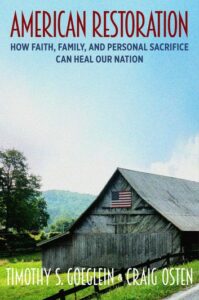NEA Says Homeschooling ‘Not Comprehensive’
The National Education Association (NEA) has long been an outspoken foe of homeschooling. For many years, they have maintained a formal resolution against homeschooling at their annual teachers union convention. According to the Home School Legal Defense Association (HSLDA), the latest NEA resolution against homeschoolers goes a step farther than previous versions, stating that “…home schooling programs based on parental choice cannot provide the student with a comprehensive education experience.” In NEA-speak, this means that only a public school education offering all the latest educational fads, failures, progressive indoctrination, and typically including explicit sex education starting at least by middle school, will suffice for American children.
Fortunately, and in no small part due to the efforts of the HSLDA and other defenders of homeschooling, the current trend in state legislatures is to allow homeschooling families even more freedom. After all, decades of achievement by homeschooled children have proven that homeschooling works. But the NEA feverishly pursues its advocacy of strict government control over the education of all students, and they and their allies remain a force to be reckoned with at state, local and federal levels. Ongoing vigilance is needed by homeschooling parents, grandparents and others who champion educational choice, so that this precious right of parents to educate their own children continues to be preserved. HSLDA.org, 12/28/19
Education News Briefs
House Democrats conducted a personal attack on Education Secretary Betsy DeVos in December as she explained her department’s overhaul of a federal education program. Her target for revision was a program that actually makes it more difficult for students to obtain loans, an effort one might expect Democrats to applaud. Instead, Democrat members of the House Committee on Education and Labor attacked DeVos personally, telling her she is “the most unpopular person in our government,” and accusing her of holding up the program “to make students’ lives worse.” What DeVos and her department were actually doing was rewriting the rules for judging claims in an attempt to streamline the process and clean up the backlog of student loan applications left over from the Obama administration. Some observers believe the attack on DeVos was an indication of disarray in the ranks of House Democrats over education, and predict that it may backfire. (Washington Examiner, 12-14-19)
Teacher strikes in key states could potentially impact the 2020 presidential election.In 2016, Donald Trump won the presidency with victories in Michigan, Pennsylvania and Wisconsin. In 2020, labor unrest among teachers in those states could open the door to a potentially high-profile alignment with the Democratic presidential nominee. For example, Massachusetts Senator and Democratic presidential candidate Elizabeth Warren attracted national media attention when she protested with Chicago teachers in their strike last year. Senator Bernie Sanders (I-VT) and fellow candidate for the 2020 Democratic presidential nomination, personally supported the striking Chicago teachers as well. While union leaders in these states say they don’t expect to strike except as “a last resort” and that the presidential election is not their focus, the jury is out as to whether any potential teacher unrest will be a factor. (Education Week , 11-27-19)
Book Review
American Restoration: How Faith, Family, and Personal Sacrifice Can Heal Our Nation
Timothy S. Goeglein and Craig Osten, Gateway Publishers, 2019, $19.60
While they were writing their new book, American Restoration: How Faith, Family, and Personal Sacrifice Can Heal Our Nation, co-author Craig Osten attended his 40th high school reunion in Northern California – not exactly friendly territory for conservatives.

However, because as a Christian, Craig views his friends as worthy of dignity and respect despite their disagreements, and chooses to treat them in that manner, the result was a wonderful weekend of memories and conversations. Craig found that despite their differences, he and his friends were able to put what they disagreed about aside and enjoy their time together.
One childhood friend, a liberal community college administrator, asked a pointed question over dinner about the author’s current politics. That question led to several civil email exchanges, which Craig initiated. These exchanges resulted in the breaking down of barriers and the establishment of dialogue that led them to find common ground on issues they probably thought were impossible to reconcile. In addition, Craig was able to share his faith openly with his friends that weekend, as they knew he cared about them as people, regardless of their political beliefs.
The book’s authors admit that, given the current political climate, our national discourse is “often so vile and venomous it seems to be beyond repair. This raises the question, ‘Can a constitutional republic last and thrive when many Americans cannot stand the sight of each other?’”
The answer, say the authors, is “yes,” despite evidence to the contrary. They write: “Civil discourse is not something that takes place far away from us, over which we have no control. Rather, it starts with us – with how we think about and act toward each other. Therefore, our national healing also begins with us – the individual men and women who make up American society.”
Throughout the book, the theme of American Restoration is one of hope and a firm belief that it is possible to reverse America’s current course, if we act now. If America is to return to its roots as a constitutional republic that respects the beliefs of all citizens, upholds freedom, affirms life, and is a shining light to the world, we must engage with others civilly and gracefully rather than in anger; with hope rather than fear.
By practicing this grace, we can engage others for the greater good, regardless of our differences, while pointing them to the source of that grace: our faith. These efforts will help us combat today’s pervasive secularism, and shift the focus to restoring our culture based on the ideals of Western civilization that recognize all rights as coming directly from the Creator rather than from man.
MALLARD FILLMORE / by Bruce Tinsley







